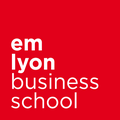“How do you get somebody that you’ve never met before to entrust you with more than half a million pounds when they haven’t even seen you produce anything? That is the key… you’re like starting from scratch with every new program.”
(Entrepreneur)
Starting your first new business is difficult- uncertainty lurks around every corner. And among the most difficult things is finding someone who will fund or back your venture, especially when you have no track record of success to point to. So how do you gain the legitimacy investors look for?A new research project carried out by Assistant Professor Celina Smith and Associate Professor Marti Ignasi from EMLYON finds that new entrepreneurs exploit the varying roles that their projects can play and then sequence these in order to tailor the legitimacy they need to build their business.The paper draws on data from a five-year study looking at investment pitches made to independent television production companies by entrepreneurs.Legitimacy is central to new venture survival –it reflects an organizations’ endorsement by different key stakeholders. To gain legitimacy entrepreneurs must align with established constraints and practices to reassure key stakeholders, and to fit in with what is perceived as acceptable in the marketplace. These are the three roles entrepreneurs exploit in order to gain legitimacy:
- Crystallising
In this role, entrepreneurs are consolidating the experience they already have from either previous employment, or educational background. If entrepreneurs start their venture by engaging in projects closer to their prior experience, the credibility gap is smaller and each project completed successfully will increase their legitimacy.
- Normalising
In this role, entrepreneurs may bring new services into their business but they will always rely on past experience. In the eye of the employer, this reinforces the entrepreneur’s competencies.
- Catalysing
This third project role allows entrepreneurs to take small steps towards projects which are out of their expertise area. Projects undertaken in this role might build on projects in the normalising stage, but will have different characteristics; these projects will be more ambitious, will need more resources (financial and human) and will ultimately help attain the entrepreneur’s growth goals.The study finds that entrepreneurs who did not have sufficient legitimacy to compete at the top end of their industry, sought to migrate from less prestigious to more ambitious projects incrementally. By targeting and sequencing key projects based on the role they could play, entrepreneurs can build up legitimacy over time. In the data analysed, the study finds three sequences as follows:
- Sequencing two step
Entrepreneurs can move forward in the development of their projects by repeating the same project role sequence. In this case the study observes entrepreneurs undertake project roles in crystallising and catalysing then repeat the sequence. This is a less ambitious development strategy.
- Consecutive sequencing
Some entrepreneurs choose to develop their roles sequentially and consecutively. In this case, entrepreneurs go through all three project roles described above and start the cycle anew when engaging in projects further from their core expertise.
- Non-consecutive sequencing
The sequencing of project roles did not necessarily take place consecutively, as entrepreneurs drew on some roles repeatedly. Some companies might deliberately choose to start with a role and stay in that role as they envisage a more steady growth.New entrepreneurs seeking to work in temporary project environments should identify key project roles and then sequence these incrementally to suit long-term goals. By mapping the potential utility of each project and how projects might link up to one another, and by taking a more global view of project development, entrepreneurs can build a stronger base for the attainment of legitimacy.

Celina Smith is an assistant professor of entrepreneurship at EMLYON, and a Visiting Fellow at Imperial College Business School in London. She holds a PhD from Imperial College Business School where her dissertation won best PhD (2009). Her research interests focus on social network theory, new venture creation, and family business. She has worked as an entrepreneur leading two companies in the UK creative industries, and today teaches courses on new venture growth and social networks.
More information on Célina Smith :
• Her CV online
Further reading…
On the same topic:
- Smith, C., Marti, I. [2016]. Attaining legitimacy in temporary business: The case of new entrepreneurs in the television industry. Journal of Small Business Management, Forthcoming.



Recent Comments